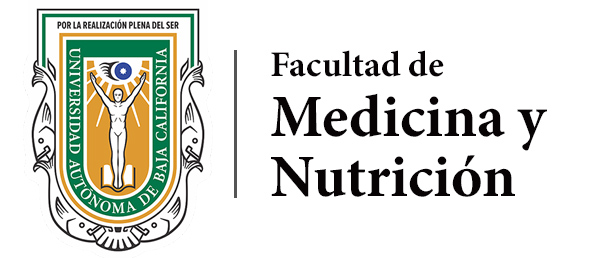SPECIALTY IN
MEDICAL SURGICAL EMERGENCIES
Specialty in Medical Surgical Emergencies
Introduction
The Specialty in Medical Surgical Emergencies (Medical Surgical Emergencies Residency) is part of the Medical Specialties Program offered by the School of Medicine in Mexicali. It is aimed at General Physicians who have an interest in academic improvement and professional specialization in Medical Surgical Emergencies.
Objetives
Train medical specialists in Medical Surgical Emergencies who perform their profession and are competent in solving medical problems of their discipline individually and in their environment by acquiring knowledge, abilities, skills and attitudes that allow them to develop their main functions: medical care, research in their field and teaching while remaining humanistic and respectful of the regulations.
Program Structure
The Specialty in Medical Surgical Emergencies lasts six semesters. The academic course load is composed of subjects which contents provide the student with a conceptual, methodological and instrumental base that promotes surgical abilities and skills as well as integration for the optimal development of the specialty. Clinical rotations provide the student with the required competence in becoming a specialized physician in the area.
Graduate Profile
Graduates at the end of the specialty will achieve a profile that allows them to:
- Students graduating from the specialty in Medical Surgical Emergencies must be able to apply their knowledge of medical attention methods and techniques efficiently, effectively and according to each individual and general circumstance they will face during their professional practice.
- Critically apply prevention, diagnosis, treatment and rehabilitation resources to patient care.
- Select, analyze and evaluate the medical literature of their specialty and apply it aptly to their daily work in order to sustain, deepen and expand their professional actions.
- Participate in the development of medical research projects focused on the solution of significant problems of the specialty.
- Collaborate with interdisciplinary groups within the health field, seeking the integration of their own work to the work of other professionals in the area.
- Participate in health education activities aimed at patients and social groups, as well as spreading medical knowledge to peers and new generations of health professionals.
- Base the practice of his specialty in the principles of humanism considering the bio-psychical integrity of the individuals in their constant interaction with the social environment.
- Seek ongoing education and professional improvement for their continuous improvement and ethical use of medical knowledge.
- Act within a regulatory framework of professional practice.
Curriculum
Structured in 6-month cycles, with subjects whose contents meet the standards established by the university itself and health institutions requirements.
- Semesters I-II: Critical Patient Care, Trauma, Gastroenterological Emergencies, I-II Research and Teaching Seminar. Cardiovascular Emergencies, Immunoallergic Emergencies, Neurological and Neurosurgical Emergencies.
- Semesters III-IV: Emergencies Caused by Infectious Agents, Respiratory Emergencies, Gynecological Emergencies, Research and Teaching Seminar III-IV, Urological Emergencies, Otorhinolaryngology Emergencies, Opthalmologic Emergencies.
- Semesters V-VI: Ethical and Legal Considerations of the ER, Professional Social Service, Clinical Clerkship.
Application Requirements
- Turn in all the documentation listed in the following link: (To be published).
- Medical and psychometric examination.
- Interview with the associate professor of the Medical Surgical Emergencies Specialty academic course.
- Comply with the enrollment requirements set by UABC Graduate and Research Coordination and Student Services and School Management Coordination.
Selection Process
- The applicant for the Medical Surgical Emergencies Specialty must present the ENARM test at the location designated by the Interinstitutional Commission for Human Resources Training and Health Research (CIFRHS), once the requirements set out in the call are met.
- Applicants will enter the process of internal selection in hospitals, through the announcement issued by the School of Medicine in Mexicali in coordination with health institutions (ISESALUD and IMSS). This call is published on an annual basis on the Mexicali School of Medicine and ISESALUD websites.
- Those selected by the ENARM test and the hospitals call are required to hand in the required documentation in person at the Mexicali School of Medicine and at the Health Institution hospital. Interviews, medical and psychometric tests will be conducted there to determine the selected candidates for the specialty in Medical Surgical Emergencies. Consult all required documentation in the following link: (To be published).
- The scholarship for the selected students will be in charge of the hospitals of the corresponding Health Institution.
- There are student exchange support programs for academic programs recognized in the CONACyT National Postgraduate Registry available through the corresponding invitations issued on the CONACyT website.
Graduate Requirements
- Having successfully completed the credits indicated by the curriculum for the specialty in Medical Surgical Emergencies.
- Present a final project to obtain the Specialty Diploma.
- Take the final exam of the specialty.
- Clearance Certificate stating no outstanding loans or fines on bibliographic material from the library of the Mexicali School of Medicine and the Central Library of the UABC.
- Clearance certificate form the university's Treasury.
Process for Obtaining The Diploma
(To be published)
Facultad de Medicina y Nutrición, UABC
Last updated on january 5th, 2026
